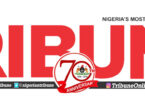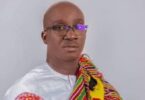Ongoing efforts to boost the country’s literacy level and tackle the Out-of-School children gained a boost as Nigeria Governors’ Forum (NGF) urged Federal and Subnational Governments to ensure allocation of 15 to 25 per cent of the annual budgetary provisions for education.
The NGF’s National Coordinator/Adviser, Committee of States’ Commissioners of Education in Nigeria (COSCEN), Dr. Ebenezer Leo The Great disclosed this during the annual training on ‘Governance and Public Policy Reporting’, jointly organised by Premium Times Academy and NGF.
Breakdown of the immediate past administration’s annual budgetary allocations between 2016 to 2023 showed that N369.6 billion or 7.9% allocated in 2016; N550.5 billion or 7.4% in 2017; N605.8 % in 2018 and N620.5 billion or 7.05% of the annual budgets were approved for the education sector in his first term spanning 2016 to 2019.
In his second term, President Muhammadu Buhari’s administration allocated N671.07 billion or 6.7% in 2020; N742.5 billion or 5.68% in 2021; N1.18 trillion or 7.2% in 2022 and N1.79 trillion or 8.8% in 2023 of the annual budget for the period under review.
However, the Statistics showed that out of total sum of N27.5 trillion proposed by Federal Government for 2024, N2.18 trillion or 7.9% is for education sector in 2024 fiscal year.
Meanwhile, the 2024 educational budgetary allocation of both Federal and Subnational Governments, the statistics conducted on six states showed that out of total sum of N300.2 billion proposed by Bauchi State in 2024, N48 billion or 16% is for education; from total sum of N521.5 billion proposed by Enugu State, N134.5 billion or 26% is for education; from total sum of N434.2 billion proposed by Oyo State, the sum of N90.6 billion or 21% is for education; from total sum of N199.9 billion proposed by Nasarawa State, the sum of N41.9 billion or 21% is for education; from the total sum of N714.4 billion proposed budget by Delta State, the sum of N46.55 billion or 6% is for education while from the total sum of N454.3 billion proposed by Katsina State, the sum of N64.4 billion or 15% is for education in the forthcoming fiscal year.
In the bid to tackle the menace of underfunding of education across the country, Dr. Leo solicited the support of the media with a view to ensuring increased education financing at both the Federal and state with 15-25 percent increase in budgetary allocation to the education sector.
Nigeria has an estimated population of 200 million, 106 million (53%) are school-aged children. Nigeria occupies an ‘enviable’ position as the country with the highest number of Out-of-School Children in the world.
“The global estimate for Out-of-School Children (OOSC) is 258 million. In sub-Saharan Africa, 62 million Children are estimated to be OOSC. In Nigeria, over 12 million Children are estimated to be OOSC.
“In June 2022, UNESCO and UNICEF estimated that 1 in 3 children in Nigeria
are OOSC. 10.2 million at the primary school level and 8.1 million at the Junior
Secondary School level. The report also stated that 12.4 million Children in Nigeria never attended school and 5.9 million left school very early. This means that Nigeria accounts for 15% of the global figure of out-of-school children.
Dr Leo maintained that the media can play a significant role in supporting this advocacy by highlighting the benefits of investing in education, showcasing success stories, and fostering public support for increased funding.
While noting that Out-of-School Children are a major threat to Nigeria, Dr. Leo noted that to collate the number of Out-of-School Children in Nigeria, you have to get the data from the 36 States and FCT, and collated by Developmental Partners which put the figure at over 20 million out-of-school children from Basic to Secondary school levels.
He maintained; “If you go to schools, 70% of our children in the schools can still not be able to make any meaning both in mathematics, numeracy and literacy, and that has been the challenge.
“Regrettably, 70% of children in Nigeria cannot read with meaning or solve simple mathematical problems. Nigeria faces significant challenges in its education sector, with varying disparities across regions.
“To address these issues effectively, leveraging Nigeria faces challenges in its education sector, such as low literacy rates, insufficient infrastructure, and a significant out-of-school population, especially in certain regions.
“These statistics highlight the urgency of addressing educational issues and the importance of media in facilitating this change.
“The media plays a crucial role in promoting education at the sub-national level in Nigeria. It serves as a powerful platform to disseminate information, raise awareness about educational issues, and provide learning opportunities.
“Traditional media like television, radio, and newspapers, as well as modern platforms such as social media and online resources, contribute to educating people across various demographics.
“Traditional media outlets like radio and television have been historically important in reaching remote areas with educational content. In recent times, modern media platforms have expanded the reach and engagement levels, allowing for interactive and targeted educational campaigns,” he urged.
. TheWitness







